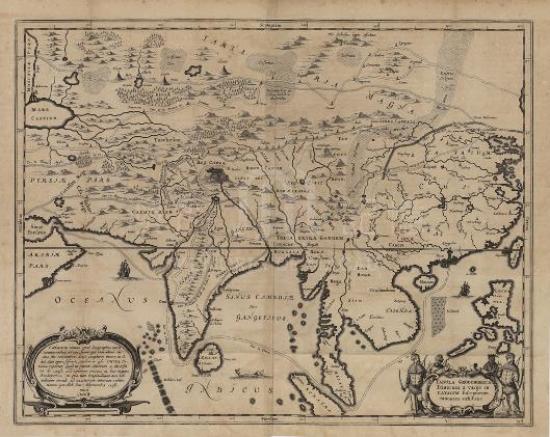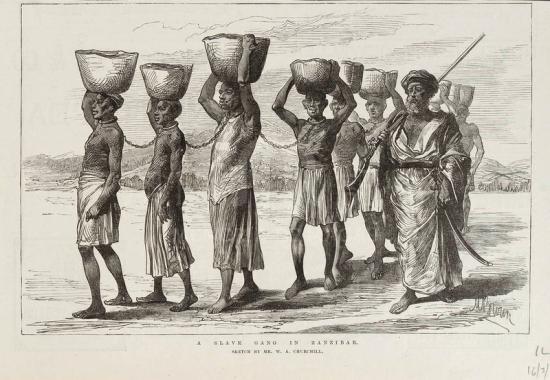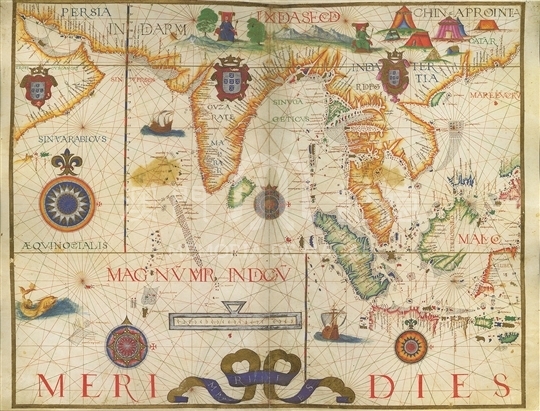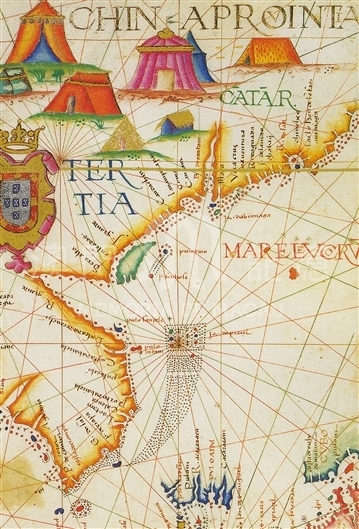Diogo Homem was a principal member of the Portuguese cartography family in the 16th century, whose father was Lopo Homem, one of the cartographers of “Miller Atlas”. In 1547, due to a legal dispute Diogo left Portugal to live in the United Kingdom and then in Italy, where he drew a variety of maps including five surviving World Atlas and many single maps. One of the Atlas Universal is now collected in National Library of Russia in St. Petersburg, Russia. According to historical records, the atlas was passed in Russia from Spain in the 19th century. This atlas comprises a total of 20 maps drawn on parchment with colors and the dimension of each is 45 x 58cm. The atlas has been well preserved, with the bright colors still shining. Research shows that the atlas was portrayed around 1565, while the place is still not determined. The map selected here is one piece of Homem’s atlas collected in National Library of Russia, which gives a relatively complete demonstration of the vast area from the east coast of Africa to eastern Asia. The map shows no evidence of the impact of Ptolemy’s geographical concept, and uses the word “China” to represent the country. (In the original manuscript there is the following text: On the map, the Chinese coastline was marked with “Ma_a”, which was covered by a latitude line, but it can be inferred “Ma_a” is today’s Macao by geographical location and language labeling. In addition, above Pegu (today’s Bago in Myanmar) there is another place marked with “Macoa”. (For the further interest, please check the note of 170-179 plates in Portugaliae Monumenta Cartographica.)
It is copied from Atlas universal from Macau University of Science and Technology Library. The original edition is from M. Moleiro Editor in 2002 copied from the precision limited edition.
Reference:
[1]. Cortesão, A. (1960). Portugaliae monumenta cartographica (Vol. II, pp. 57-60; Vol. V, pp.173, plates170-179.). Lisboa.
[2]. Wolter, J. (1997). Images of the world : The atlas through history. Washington, D.C.: Library of Congress.
Informações relevantes
Data de atualização: 2020/09/09









Comentários
Comentários (0 participação(ões), 0 comentário(s)): agradecemos que partilhasse os seus materiais e histórias (dentro de 150 palavras).